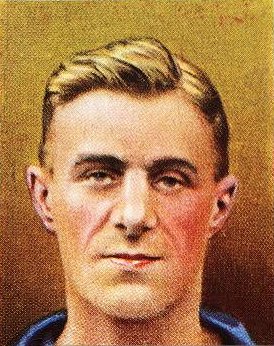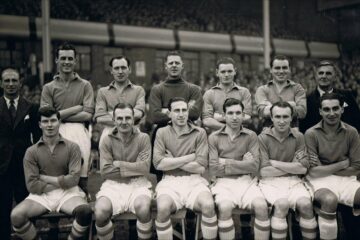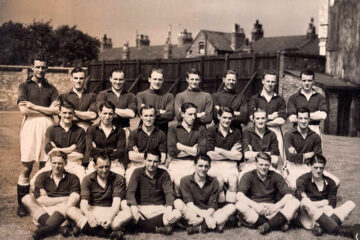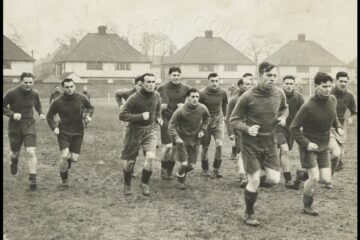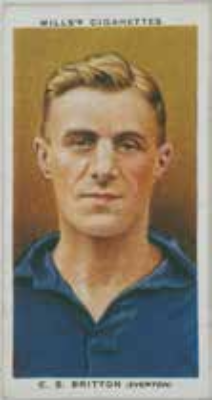
In September 1948, Cliff Britton completed the short journey from Turf Moor to Goodison Park to become Everton manager. In so doing, he became the first former player to hold the position and his appointment offered hope for the future. At Burnley he was considered one of the most promising managers in England, leading the Clarets
To promotion from the Second Division, an FA Cup final and third place in the top flight in successive years.
Britton was a favourite son of Goodison, having enjoyed a distinguished playing career as half-back. He was, recorded a 1936 profile, ‘One of the most gentlemanly and unassuming players in the game. An artiste in ball control and delightful to watch. Revels in linking up with the forwards, whilst his accurate lobbed centres are ever a menace.’
Britton had clear ideas of how he should manage Everton. In agreeing to take charge he laid down precise terms of employment to which the board agreed. These included:
‘Full power over everything pertaining to the players.’ He was soon aware of the scale of the task facing him. A minute from a board meeting noted: ‘Mr Britton detailed his opinions of the playing personnel, on which only two or three seemed to be of the required First Division calibre.’
Alas, he was repeatedly frustrated in the transfer market. A British record bid to sign Middleborough’s Wilf Mannion failed, as did other big-money offers. Instead,
He put his faith in homegrown youth, lower league performers and Ireland’s most talented players. Dave Hickson, Eddie Wainwright, Tommy Eglington and Peter Farrell flourished under his management.
Everton, nevertheless, struggled. They were relegated in 1951 and found life in the Second Division hard. The board still held Britton in high regard though, paying him £51 a week – plus a large house in Thornton and a car – at a time when most players earned £15. When he finally won promotion back to the First Division in 1954, he was given a bonus of £2,OOO.
After promotion, Everton briefly challenged for th e 1954 / 55 le ag u e championship, but slipped away in the last month of the season, finishing 11th. The following spring, Britton became embroiled in an unholy row with the board after they appointed a member of his backroom staff to lead an end-of-season tour to the US. He called them “despicable men” and demanded they pay up a 4O-year lease on his club house as a condition of his staying. When they refused his demands he walked out.
He returned as manager with Preston and there were a couple of title challenges in the late-195Os. Later, as Hull manager, he won the Third Division championship in 1966, but a return to the top flight remained elusive.
James Corbett

